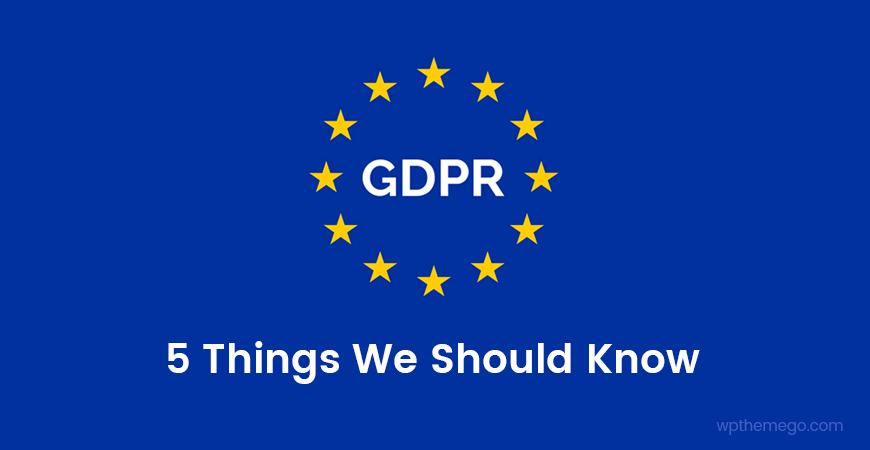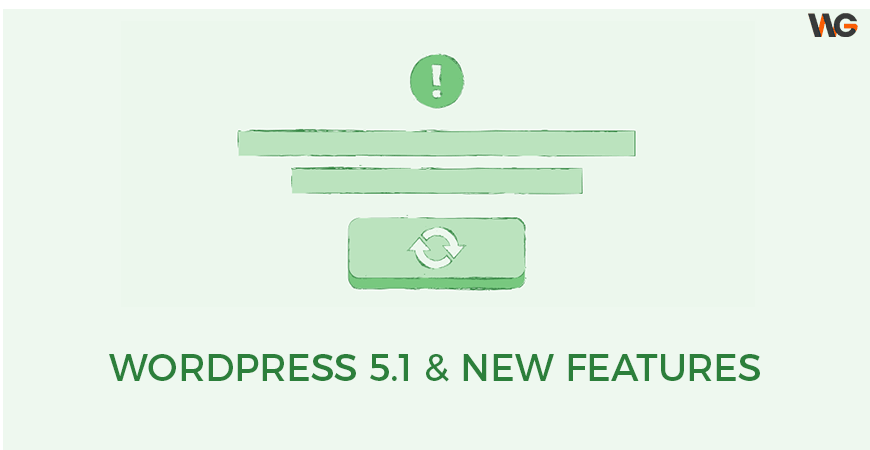What do you know about GDPR or the EU General Data Protection Regulation? Is your website GDPR compliance ready? If so, let’s check this article and make sure it will be ready before May 25, 2018.
In an increasingly data-driven world, it’s even more and more important for all of us to know how to protect our personal data. In this post, WPThemeGo will present the GDPR and 5 things we should know for our WordPress site.
What is GDPR?
GDPR is considered as the most important change in data privacy regulation in 20 years.
According to EUGDPR.org, the EU General Data Protection Regulation (GDPR) “was designed to harmonize data privacy laws across Europe, to protect and empower all EU citizens data privacy and to reshape the way organizations across the region approach data privacy.”
As the result, all the EU citizens will have right to control their digital data. They will know when personal data is being collected, what data is being collected, access to that data, and to purge it on request.
When it comes into effect?
The EU General Data Protection Regulation will be in full force from May 25th, 2018. It’s only about a month to go now.
Who GDPR applied for?
GDPR is not only applied in the EU regions, it also has impact on all over the world, and all websites are potentially applied.
The GDPR will affect:
- all organizations established in the EU,
- all organizations involved in processing personal data of EU citizens.
The EU law will be surely applied for EU countries, so why the other regions need to meet this articles?
This regulation impacts on any website that handles personal data of any EU citizen. Any WordPress website must comply with the GDPR no matter where in the world the servers or administrators are physically located, no matter industries or sectors of your website. If you accept traffic from the EU and collect information from EU citizens, GDPR compliance matters.
Data Subject Rights under GDPR
To know how to comply your WordPress site with GDPR, we need to know how data is being processed and stored on your servers.
Usually, data is collected in WordPress site via:
- user registrations,
- comments,
- contact form entries,
- analytics and traffic log solutions,
- any other logging tools and plugins,
- security tools and plugins.
To make sure that your website is GDPR compliance ready, please pay attention to some key points as below:
1. Breach notification
Under the GDPR, breach notification will become mandatory in all member states where a data breach is likely to “result in a risk for the rights and freedoms of individuals”. This must be done within 72 hours of first having become aware of the breach. Data processors will also be required to notify their customers, the controllers, “without undue delay” after first becoming aware of a data breach.
Due to the GDPR compliance, if your website is experiencing a data breach of any kind, that breach needs to be communicated to your users.
If you notice a data breach, you would need to notify all those affected by the breach within this designated time frame – within-72-hours. However, the complexity here is the definition of the term “user” – it may constitute regular website users, contact form entries, and potentially even commentators.
This clause of the GDPR thus creates a legal requirement to assess and monitor the security of your website. In general, this will encourage one to use the best security practices available to ensure data breaches do not occur.
2. Right to Access
Part of the expanded rights of data subjects outlined by the GDPR is the right for data subjects to obtain from the data controller confirmation as to whether or not personal data concerning them is being processed, where and for what purpose. Further, the controller shall provide a copy of the personal data, free of charge, in an electronic format. This change is a dramatic shift to data transparency and empowerment of data subjects.
As a WordPress site owner, you first need to publish a detailed policy on which personal data points you’re using, how they are being processed and stored.
3. Right to be Forgotten
Also known as Data Erasure, the right to be forgotten entitles the data subject to have the data controller erase his/her personal data, cease further dissemination of the data, and potentially have third parties halt processing of the data. The conditions for erasure, as outlined in article 17, include the data no longer being relevant to original purposes for processing, or a data subjects withdrawing consent. It should also be noted that this right requires controllers to compare the subjects’ rights to “the public interest in the availability of the data” when considering such requests.
4. Data Portability
GDPR introduces data portability – the right for a data subject to receive the personal data concerning them, which they have previously provided in a ‘commonly use and machine readable format’ and have the right to transmit that data to another controller.
5. Privacy by Design
Privacy by design as a concept has existed for years now, but it is only just becoming part of a legal requirement with the GDPR. At it’s core, privacy by design calls for the inclusion of data protection from the onset of the designing of systems, rather than an addition. More specifically – ‘The controller shall..implement appropriate technical and organisational measures..in an effective way.. in order to meet the requirements of this Regulation and protect the rights of data subjects’. Article 23 calls for controllers to hold and process only the data absolutely necessary for the completion of its duties (data minimisation), as well as limiting the access to personal data to those needing to act out the processing.
Privacy by design encourages controllers to enforce data policies which enable the processing and storage of only that data which is absolutely necessary. This encourages site owners and controllers to adopt potentially safer policies for data, by limiting the access to number of data points.
6. Data Protection Officers
Currently, controllers are required to notify their data processing activities with local DPAs, which, for multinationals, can be a bureaucratic nightmare with most Member States having different notification requirements. Under GDPR it will not be necessary to submit notifications / registrations to each local DPA of data processing activities, nor will it be a requirement to notify / obtain approval for transfers based on the Model Contract Clauses (MCCs). Instead, there will be internal record keeping requirements, as further explained below, and DPO appointment will be mandatory only for those controllers and processors whose core activities consist of processing operations which require regular and systematic monitoring of data subjects on a large scale or of special categories of data or data relating to criminal convictions and offences. Importantly, the DPO:
- Must be appointed on the basis of professional qualities and, in particular, expert knowledge on data protection law and practices
- May be a staff member or an external service provider
- Contact details must be provided to the relevant DPA
- Must be provided with appropriate resources to carry out their tasks and maintain their expert knowledge
- Must report directly to the highest level of management
- Must not carry out any other tasks that could results in a conflict of interest.
Do we need to comply with GDPR?
All individuals, companies and organization should take the GDPR compliance seriously.
If an organization does not compliant to GDPR, they can be fined up to 4% of annual global turnover for breaching GDPR or up to €20 Million.
References
For more detail information about GDPR, you can check at website EUGDPR.org.
In the next article, we will continue with How GDPR has effect on WordPress site owner and developer. Please stay tuned!








Leave Your Comment